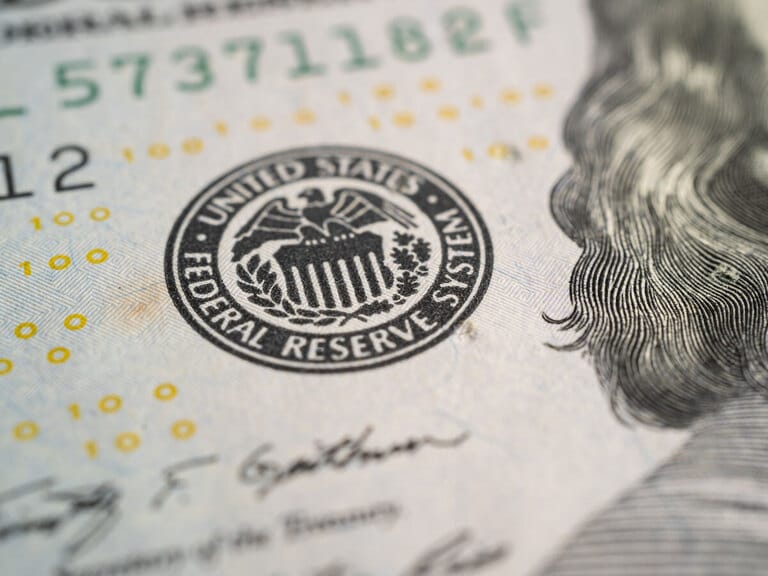Visa’s [V] share price has soared as lockdown restrictions ease and consumers spend more, gaining 45% since 23 March. While the stock saw a degree of profit taking in September, a strong set of results for the fiscal fourth quarter could see Visa’s share price head back towards its 52 week high of $217.35.
So, will Visa’s share price see a post-earnings bounce or should investors hold off for a potential dip?
When is Visa reporting earnings?
28 October
What happened last quarter?
Visa topped analyst forecasts in its fiscal third quarter as consumers once again started spending thanks to an easing in lockdown restrictions. Net income came in at $2.3bn, or $1.06 per share, down 24% from the $2.3bn seen last year. This was enough to beat the Zacks consensus estimate of $1.02 a share, but it did not have an immediate positive impact on Visa’s share price.
Non-Gaap net revenues came in at $4.8bn, down 17% from the same period last year. Payment volumes decreased 10% year-on-year, while total transactions processed by Visa came in at $30.7bn, a 13% decrease from last year.
$30.7billion
Total transactions processed by Visa in Q3 2020
Why should investors care?
Consumer demand returns
While Visa saw year-on-year declines in its last set of earning results, things are improving. Visa said that in the US it “saw spending improve each month as most countries began to relax domestic restrictions.” Third quarter results saw debit and credit card usage no longer in decline, but increasing as customers go in for some consumer therapy.
Investors will be hoping this trend continues and boosts Visa’s share price, making transaction volumes the key metric to look out for in the results. At the Deutsche Bank Technology Conference on 15 September, Visa’s executive vice president, Oliver Jenkyn, gave some insight on what to expect in Q4:
“I think our Q3, fiscal year Q3 for us, payment volume was still down in the US. And then in Q4, payment volume was up about 8% so far in Q4, with growth of 8% in July, 7% in August per our recent 8-K. So, that's good.”
“I think our Q3, fiscal year Q3 for us, payment volume was still down in the US. And then in Q4, payment volume was up about 8% so far in Q4, with growth of 8% in July, 7% in August per our recent 8-K. So, that's good.” - Oliver Jenkyn, executive vice president of Visa
A surge in online transactions is likely to offset any annual decline in transactions from bricks and mortar stores. Covid-19 has accelerated a shift to online shopping, and ecommerce sites have been reporting bumper revenues this earning season. Visa’s share price could see a post-earnings boost if online transactions continue to increase.
Virtual card fees will add to bottom line
Visa is planning to extract more revenue from its business-to-business ‘virtual card’ facilities. In a recent update, Visa said it would add a new 0.6% service fee on domestic virtual card transactions and 1.55% on cross border transactions.
The move isn’t unprecedented — MasterCard [MA] charges an equivalent fee for virtual card transactions. According to Susquehanna analyst James Friedman, this could result in an extra 2% to 4% in revenue above current estimates beginning in 2022. Such an improvement would likely see Visa’s share price increase.
What is Wall Street expecting for Visa’s share price?
Expectations are that Visa will post earnings of $1.10 a share, down from earnings of $1.47 seen in the same quarter last year. Revenue is expected to come in at $5bn, down over 18% from the $6.14bn seen last year. Could an earnings beat be on the cards? In the past four quarters, Visa has managed to narrowly top Wall Street expectations three times.
Writing on InvestorPlace, Faizan Farooque says that investors should play the waiting game when it comes to Visa’s share price. Farooque admits the company boasts a “rock solid” balance sheet, but suggests the stock was overvalued at the time of writing (13 October). Instead, he recommends investors buy when Visa’s share price is below $200.
“You’ll be hard-pressed to find an analyst or investor who doesn’t think that Visa is a good stock. However, the optimal price at which to buy the shares is up in the air. Buying stocks at the right price is one of the most critical factors in value investing,” writes Farooque.
Among the analysts tracking the stock on Yahoo Finance, Visa’s share price has a $224.84 target. Hitting this would see a 22.8% upside on the current share price (as of 26 October’s close). Of the 39 analysts offering recommendations, 13 rate Visa a Strong Buy, 22 rate it a Buy and the remaining four rate it a Hold.
| Market Cap | $423.874bn |
| PE Ratio (TTM) | 36.69 |
| EPS (TTM) | 5.26 |
| Quarterly Revenue Growth (YoY) | -17.20% |
Visa's share price vitals, Yahoo Finance, 27 October 2020
Disclaimer Past performance is not a reliable indicator of future results.
CMC Markets is an execution-only service provider. The material (whether or not it states any opinions) is for general information purposes only, and does not take into account your personal circumstances or objectives. Nothing in this material is (or should be considered to be) financial, investment or other advice on which reliance should be placed. No opinion given in the material constitutes a recommendation by CMC Markets or the author that any particular investment, security, transaction or investment strategy is suitable for any specific person.
The material has not been prepared in accordance with legal requirements designed to promote the independence of investment research. Although we are not specifically prevented from dealing before providing this material, we do not seek to take advantage of the material prior to its dissemination.
CMC Markets does not endorse or offer opinion on the trading strategies used by the author. Their trading strategies do not guarantee any return and CMC Markets shall not be held responsible for any loss that you may incur, either directly or indirectly, arising from any investment based on any information contained herein.
*Tax treatment depends on individual circumstances and can change or may differ in a jurisdiction other than the UK.
Continue reading for FREE
- Includes free newsletter updates, unsubscribe anytime. Privacy policy





